What Can I Do To Support a Loved One Overcoming Addiction?
Supporting a loved one who is overcoming addiction can make a significant difference in their recovery journey. Here are some suggestions on what you can do to help:
- Educate yourself: Learn about the nature of addiction, the recovery process, and the specific substance or behavior your loved one is struggling with. Understanding the challenges they face will enable you to provide better support.
- Encourage professional help: Encourage your loved one to seek professional help from addiction counselors, therapists, or support groups. Offer to assist them in finding appropriate treatment options and accompany them to appointments if they need support.
- Be non-judgmental and empathetic: Addiction is a complex issue, and it’s crucial to approach your loved one with empathy, understanding, and without judgment. Let them know that you care about their well-being and are there to support them throughout their recovery journey.
- Offer emotional support: Listen attentively to your loved one when they want to talk about their experiences, fears, or struggles. Encourage open and honest communication, and validate their feelings. Avoid minimizing their challenges or offering unsolicited advice.
- Establish boundaries: While offering support, it’s important to set healthy boundaries to protect your own well-being. Make it clear what behaviors you are willing and not willing to tolerate, and communicate those boundaries in a compassionate manner.
- Encourage healthy habits: Promote and engage in activities that support their recovery, such as exercise, hobbies, and spending time with supportive friends and family. Encourage them to develop a routine that includes healthy habits and self-care.
- Avoid enabling: It’s crucial to avoid enabling your loved one’s addictive behaviors. This means not providing them with substances, covering up for their actions, or rescuing them from the consequences of their actions. Enablement can hinder their recovery progress.
- Attend support groups: Consider attending support groups like Al-Anon or Nar-Anon, which are specifically designed for family and friends of individuals struggling with addiction. These groups provide a safe space to share experiences, gain insights, and receive support from others in similar situations.
- Celebrate milestones and progress: Acknowledge and celebrate your loved one’s milestones and progress in their recovery journey. Recognize their efforts and express your pride in their accomplishments. Positive reinforcement can be a powerful motivator.
- Take care of yourself: Supporting someone through addiction recovery can be emotionally demanding. Remember to prioritize your own self-care and seek support for yourself when needed. It’s essential to maintain your own well-being so that you can provide effective support to your loved one.
Remember, each person’s journey to recovery is unique, and what works for one individual may not work for another. Be patient, stay supportive, and encourage your loved one to access professional resources as needed.
Opioids & The Digestive System
Opioids are a class of drugs that are primarily used to relieve pain. While they can be effective for pain management, they also have various effects on the body, including the digestive system. Here are some ways opioids can impact the digestive system:
- Constipation: Opioids are notorious for causing constipation. They slow down the movement of the digestive tract, leading to slower bowel movements and increased water absorption from the stool. This can result in hard, dry stools and difficulty passing them.
- Reduced gastric motility: Opioids can decrease the contractions of the muscles in the stomach and intestines, leading to slower movement of food through the digestive tract. This can result in delayed gastric emptying and a feeling of fullness or bloating.
- Decreased digestive secretions: Opioids can reduce the production of digestive juices such as stomach acid, bile, and pancreatic enzymes. This reduction in secretions can affect the breakdown and absorption of nutrients from food.
- Nausea and vomiting: While opioids can help alleviate pain, they can also cause nausea and vomiting, particularly when a person first starts taking them. These side effects can be a result of opioid-induced changes in the brain’s vomiting center.
It’s important to note that the effects of opioids on the digestive system can vary among individuals. Additionally, long-term use of opioids can lead to the development of tolerance, where higher doses are needed to achieve the same level of pain relief, potentially exacerbating the gastrointestinal effects.
10 Signs It’s Time For An Intervention
Recognizing the need for a drug intervention can be challenging, but there are several signs that may indicate it’s time to intervene. Here are 10 signs to look out for:
- Obsession with drugs: The person shows an intense preoccupation with obtaining and using drugs. Their thoughts, conversations, and activities revolve around drug use.
- Decline in physical appearance: Significant changes in physical appearance, such as sudden weight loss, bloodshot eyes, pale complexion, and overall neglect of personal hygiene, may indicate a drug problem.
- Behavioral changes: Noticeable shifts in behavior, including increased irritability, mood swings, agitation, secrecy, or withdrawal from loved ones and previously enjoyed activities.
- Financial difficulties: The person may frequently request money without a legitimate explanation. They may also engage in stealing or selling personal belongings to fund their drug habit.
- Deteriorating relationships: Drug abuse often leads to strained relationships with family members, friends, and colleagues. The person may become unreliable, break promises, or engage in deceptive behavior.
- Legal issues: Involvement in legal problems, such as arrests or driving under the influence (DUI) charges, can be a strong indicator that drug use has escalated to a problematic level.
- Health problems: Substance abuse can lead to various health issues, both physical and mental. Look for signs like frequent illnesses, chronic fatigue, memory problems, and sudden changes in mood or personality.
- Neglecting responsibilities: A decline in performance at work or school, neglecting parental responsibilities, or failing to fulfill obligations may signal that drug use is interfering with their ability to function effectively.
- Failed attempts to quit: If the person has expressed a desire to quit or cut back on drug use but has been unsuccessful despite multiple attempts, it may be time for an intervention.
- Loss of interest in hobbies and passions: A significant decrease in participation or loss of interest in previously enjoyed activities, hobbies, and passions can be a sign that drugs have taken precedence.
It’s important to remember that the presence of one or more of these signs does not guarantee a drug problem, but they can serve as indicators that warrant further investigation and potential intervention. Consulting with a professional, such as an addiction counselor or intervention specialist, can provide valuable guidance in assessing the situation and determining the best course of action.


